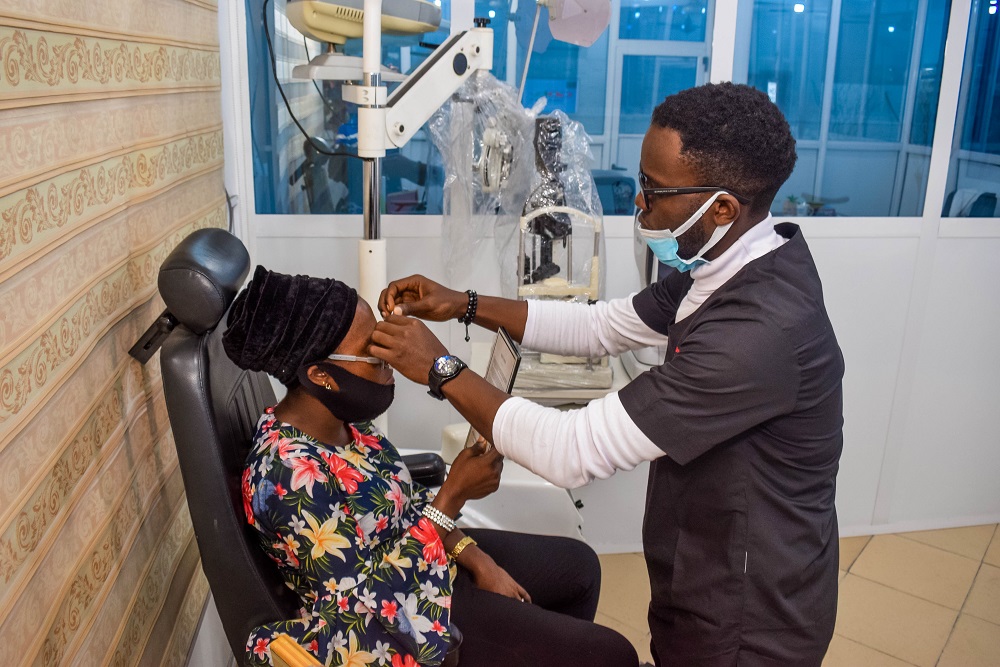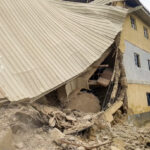In a nation where about 24 million Nigerians suffer from vision loss, eye health is too often overlooked until damage becomes irreversible.
From cataracts and glaucoma to untreated refractive errors, millions quietly adapt to poor sight, dropping out of school, struggling at work, and relying on others for the simplest tasks.
For most of them, the barrier is not awareness. Eye tests, glasses, and surgeries are beyond the reach of average Nigerians.
That reality is what spurred a local non-governmental organisation to act. In Ogun State’s capital, Abeokuta, a recent two-day outreach for eye health offered by a grassroots initiative was more than a medical exercise.
Over 1,000 residents received eye tests, consultations, and medications, while 500 people walked away with eyeglasses. For 50 others diagnosed with severe conditions, the NGO pledged to cover the costs of surgery and for beneficiaries themselves, the results were immediate.
The project also presents a solutions pathway, extending services directly to underserved communities, reducing cost barriers, and making sure that even surgical requirements are not ignored.
Notably, the organisation said it planned to broaden its outreach in December to combat non-communicable diseases such as diabetes and hypertension, acknowledging that vision issues are frequently causally related to other health issues.
A national movement for eye health
This Ogun outreach is part of a series of innovative solutions to Nigeria’s eye health crisis. In Osun State, a recent Lions Clubs initiative reached over 6,000 residents across rural communities, providing free eye screenings, eyeglasses, medications, and referrals for surgery, a boost for people who would otherwise struggle to access specialized care
Similarly in Lagos, the Saudi “Noor” Ophthalmic Volunteer Programme recently restored sight to over 4,000 residents through free screenings, cataract surgeries, treatment for refractive errors, and prescription eyeglasses, bringing advanced eye care to those who would need it and can’t afford it.
Similar initiatives across the continent demonstrate what is possible.
In Rwanda’s Kayonza District, mobile eye clinics, school screenings, and cataract surgeries were rolled out recently to extend care to rural communities, improving early detection and treatment for vision problems
From outreach to systemic change
While free outreaches like the one in Ogun bring short-term relief, there’s the need for system-level integration, which involves equipping primary health centres with basic eye care tools, training more optometrists, and ensuring that services like eyeglasses and cataract surgeries are affordable through community insurance schemes.
What distinguishes the Ogun initiative is its encompassing nature. By combining immediate relief (glasses, drugs, surgeries) with future plans for broader screenings, it is both addressing urgent eye problems and also laying the groundwork for preventive health.
And with continuity, such models could significantly reduce avoidable blindness nationwide.
For now, citizens who walked away with better vision are proof that change is possible. Eye health may often be sidelined in the crowded public health agenda of Nigeria, but such a programme proves that with resourcefulness, determination, and collaboration, millions of Nigerians need not live under the blight of poor vision.
Summary not available at this time.






